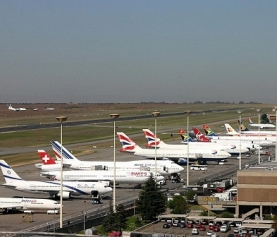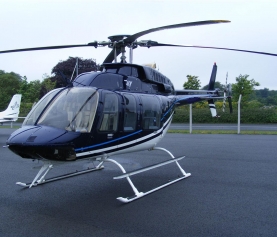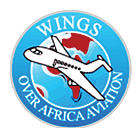
Africa’s Freight of Expectation
International freight volumes are expected to increase by 17% over the next five years with Africa tipped to be the fastest growing region, according to the International Air Transport Association (IATA).
The IATA industry forecast 2013-2017 shows that Africa can expect a 4.0% compound annual growth rate (CAGR) over the period. The fastest growing freight routes for the continent will be the intra-Africa market (5.3%). As Africa’s economy grows, so does the demand for air cargo transport? Currently ,the continents GDP is growing at a rate of 5% .
Increasing investment in agriculture and the manufacturing industry is, in particular, stimulating airfreight growth in the region. Desmond Vertannes,global head of cargo for IATA,said the market in Africa had stagnated for a while, in the same way as the global airfreight market.However,he believed cargo potential in Africa was still very strong.
“The reason is that the African exporters are finding new markets,” explained Vertannes.”The big contributor is the perishable cargo industry. Perishable, flowers, fish, and the manufacturing industry all contribute to the growth of the air cargo in Africa.”
According to Vertannes, the developing airport infrastructure in Africa is also making a difference .Air navigation, airport, airport security and customs regimes are being improved. “Considering the huge investment coming from Asia and other parts of the world, we can say that Africa has a great potential for air cargo transport development, “he said. However, there could be a question mark over whether Africa carriers are ready to meet the growing demand? Carriers such as Ethiopian Airlines ,South African Airways ,Kenya Airways and Egypt Air ,have modern cargo fleets but most other African operators have ageing aircraft and are very small in number.
Raphael Kuuchi, commercial corporate and industry affairs director with the African Airlines Association said there was a huge demand for air cargo transport because of the economic boom in Africa and he urged cargo operators to renew their fleets and embrace new technology. Vertannes agreed: “I believe the African carriers have a number of opportunities that they can pursue,” he said.
“The most important thing is to look at the air cargo departments and make sure that they put in the right level of expertise. They need to ensure that they get the right level of investment into the IT platform, embrace electronic data exchange, and make sure that the ground-handling facilities have the appropriate investment so that they can handle a great deal of import and exports.” According to Vertannes, Ethiopia is doing an exemplary job in expanding its cargo transport sector. EthiopianAirlines is acquiring a new cargo fleet and building a new cargo terminal .
Expanding the handling facility to greater capacity will help the country’s economic growth, he said. “Lots of African countries can do the same thing. They are enhancing the handling capacity for the air cargo. I congratulate Ethiopian Airlines for working with their customs authority on the e-freight agenda.
They havebeen very good in adopting the e-freight business. “We want to encourage other African countries to follow suit. We know that it is happening in Kenya and South Africa. But more countries should join the club.” IATA –initiated e-freight is an industry project, which aspires to create a paperless environment across a united cargo supply chain. Vertannes pointed out, in order to have a paperless environment, a number of things have to happen.”The country has to endorse and instill treaty MC99, the Montreal convention 99, which allows an electronic trading environment, he said.
According to Vertannes, African states have to make sure that they have the treaty in place and that their customs regimes operate to harmonized standards adopted by the World Customs Organization (WCO). “When you have created the safe framework of standards (WCO and IATA worked very closely to agree on one set of standards) then you also have to have the IT mechanism that calls for a paperless transaction,” he said. IATA officials expect African states to invest in IT infrastructure that would enable the countries to provide electronic data to their trading partners.
”This helps the acceleration of the airfreight supply chain,” said Vertannes. “What you cannot afford is to have cargo [being sent] to Africa and getting stuck at customs for four or five days. That is not airfreight. That should not happen. That is not the reason why people invest in a high mode of transport.
” The other major issue needing to be addressed is EU airport validation regulation. Anyone exporting goods into the EU has to have an ACC3 accreditation. By July 2014, the accreditation will need to be independently validated. Countries outside of the EU will need to make sure that the cargo supply chain maintains the EU security standards, at least to the ICAO Annex 17 level.
“I believe that, where cargo is important to them, the carriers are taking steps to be independently validated,” said Vertnannes. “However, July 2014 is approaching fast and African carriers should take the necessary steps. If they need information, IATA is ready to help. “If African cargo operators adopt global standards, they can compete with any international cargo operator in the world,” he added. Kuuchi agreed that African cargo operators should invest on their IT infrastructure and work closely with their customs authorities to embrace e-freight.
”We, at AFRAA, encourage African operators to adopt the e-Airway Bill. We also encourage African states to get their airports independently validated,” Kuuchi said. Air cargo & freight flights in Africa consist of consolidated, scheduled and private cargo charter flights. We have airlines operating scheduled air cargo flights on weekly and daily basis from various hubs in Africa to Europe, Middle East, Asia and United States of America.
From Kenya Jomo Kenyatta International airport we have major airlines like, Kenya Airways, Emirate, Etihad Airways, Air Arabia, Qatar Airways, Martair, KLM, Lufthansa, British Airways, Ethiopian Airlines, United Airlines carrying fresh produce, fish. We have private air cargo charter flights being operated by private charter companies for major international organizations on weekly basis. Anthony A Juma is the Editor and Director Commercial and Flights Operations at Wings Over Africa Aviation Limited.





